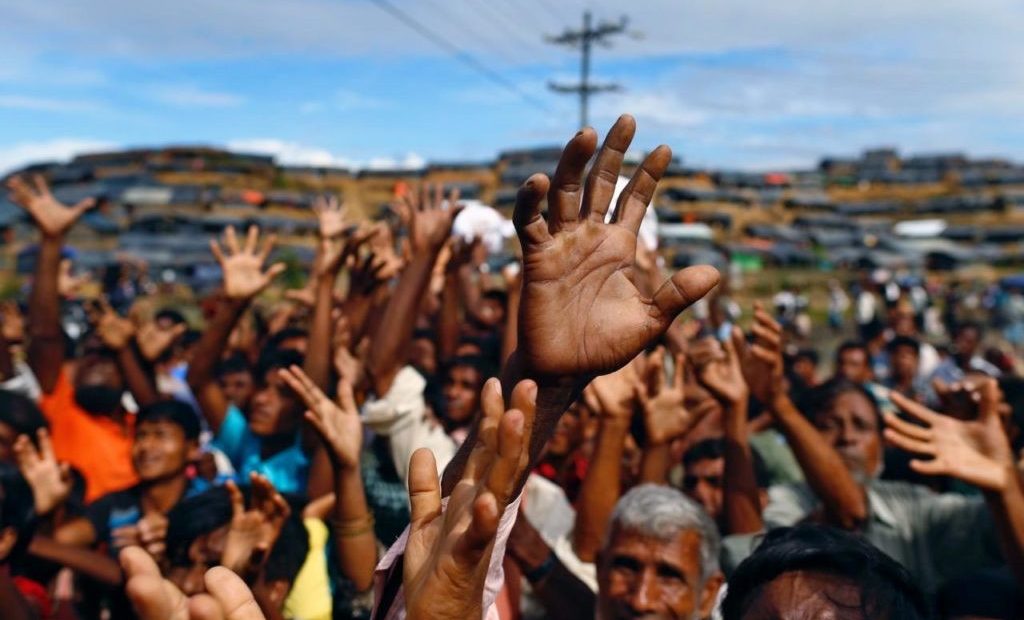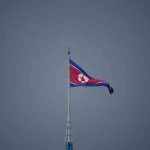Dozens of Rohingya land in Indonesia after a month adrift at sea

Dozens of hungry and weak Rohingya refugees were found on a beach in Indonesia’s northernmost province of Aceh after weeks at sea, officials said, AL Jazeera reports.
The group of 58 men arrived on Indrapatra beach at Ladong, a fishing village in Aceh Besar district, early on Sunday, according to local police chief Rolly Yuiza Away.
Villagers who saw the men from the mostly Muslim ethnic group on a rickety wooden boat helped them to land and then reported their arrival to authorities, he said.
“They look very weak from hunger and dehydration. Some of them are sick after a long and severe voyage at sea,” said Away, adding that the men received food and water from villagers and others as they waited for further instructions from immigration and local officials in Aceh.
At least three of the men were rushed to a health clinic for medical care, and others were also receiving various medical treatments, Away said.
An ethnic Rohingya man lies on the ground as he waits for medical treatment
An ethnic Rohingya man lies on the ground as he waits for medical treatment [Rahmat Mirza/AP Photo]
The United Nations and other groups on Friday urged countries in South Asia to rescue as many as 190 people believed to be Rohingya refugees on board a small boat that has been adrift for several weeks in the Andaman Sea.
“Reports indicate those onboard have now remained at sea for a month in dire conditions with insufficient food or water, without any efforts by States in the region to help save human lives,” the UN refugee agency, UNHCR, said in a statement. “Many are women and children, with reports of up to 20 people dying on the unseaworthy vessel during the journey.”
Away said it was not immediately clear where the group was travelling from or if they were part of the group of 190 Rohingya refugees that has been adrift in the Andaman Sea. But one of the men who spoke some Malay said they had been at sea for more than a month and had aimed to land in Malaysia to seek a better life and work there.
Hazardous voyages
More than 700,000 Rohingya were forcibly displaced from Buddhist-majority Myanmar to refugee camps in Bangladesh since August 2017, when the Myanmar military launched a clearance operation in response to attacks by a rebel group. Myanmar security forces have been accused of mass rapes, killings and the burning of thousands of homes.
Widely viewed by the state as interlopers from Bangladesh, the Rohingya are denied citizenship – along with access to healthcare and education – and often require permission to travel.
Thousands of Rohingya risk their lives each year, making perilous journeys to travel to other Muslim-majority countries in the region.
The UNHCR said earlier this month that there had been a “dramatic” increase in such trips, partly because of deteriorating conditions in the refugee camps they are confined to in Myanmar’s Rakhine state and Bangladesh’s Cox’s Bazar.
An estimated 1,920 mostly Rohingya people left Myanmar and Bangladesh by sea between January and November this year, compared with just 287 in 2021, according to the UNHCR.
Malaysia has been a common destination for the boats, and while traffickers promise the refugees a better life there, many of them who land in the country face detention.
Although Indonesia is not a signatory to the United Nations’ 1951 Refugee Convention, the UNHCR said a 2016 presidential regulation provides a national legal framework governing the treatment of refugees on boats in distress near Indonesia and to help them disembark.
These provisions have been implemented for years, most recently last month when about 219 Rohingya refugees, including 63 women and 40 children, were rescued off the coast of North Aceh district on board two rickety boats.
On Thursday, the UN special rapporteur on the situation of human rights in Myanmar, Tom Andrews, urged governments in South and Southeast Asia “to immediately and urgently coordinate search and rescue for this boat and ensure safe disembarkation of those aboard before any further loss of life occurs”.
“While many in the world are preparing to enjoy a holiday season and ring in a new year, boats bearing desperate Rohingya men, women and young children, are setting off on perilous journeys in unseaworthy vessels,” Andrews said in a statement.

















